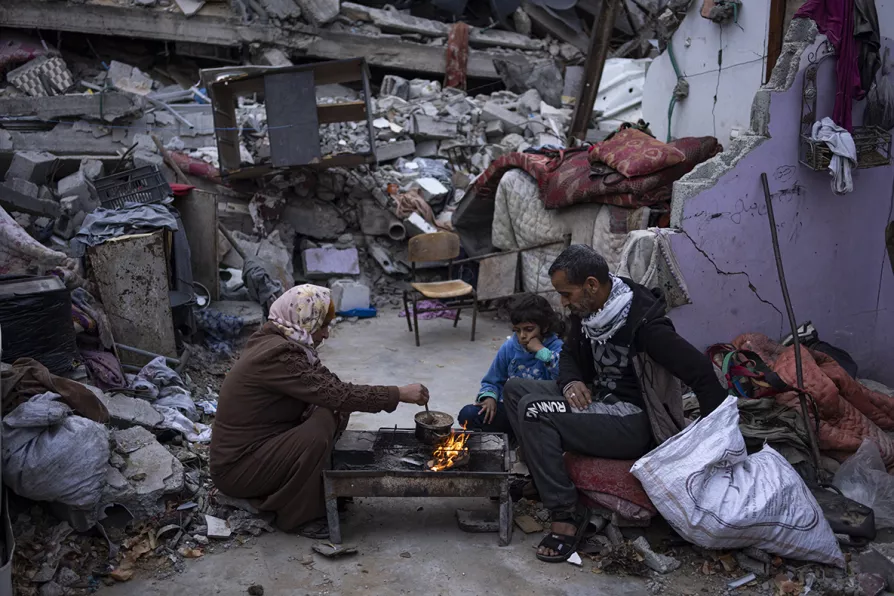RAMZY BAROUD looks at how entire West Bank communities have been shattered, their social and physical fabric deliberately dismantled by Israel to enable its formal annexation

 Members of the Al-Rabaya family break their fast during the Muslim holy month of Ramadan outside their home destroyed by Israeli airstrikes in Rafah, Gaza Strip, March 18, 2024
Members of the Al-Rabaya family break their fast during the Muslim holy month of Ramadan outside their home destroyed by Israeli airstrikes in Rafah, Gaza Strip, March 18, 2024
NO-ONE had expected that one year would be enough to recentre the Palestinian cause as the world’s most pressing issue and that millions of people across the globe would, once again, rally for Palestinian freedom.
The last year witnessed an Israeli genocide in Gaza, unprecedented violence in the West Bank, but also legendary expressions of Palestinian “sumud,” or steadfastness.
It is not the enormity of the Israeli war but the degree of the Palestinian sumud that has challenged what once seemed to be a foregone conclusion to the Palestinian struggle.

Spain has joined South Africa’s ICJ genocide case against Israel while imposing weapons bans and port restrictions, moves partly driven by trade unions — proving just how effectively civil society can reshape government policy, writes RAMZY BAROUD

With foreign media banned from Gaza, Palestinians themselves have reversed most of zionism’s century-long propaganda gains in just two years — this is why Israel has killed 270 journalists since October 2023, explains RAMZY BAROUD

Gaza’s collective sumud has proven more powerful than one of the world’s best-equipped militaries, but the change in international attitudes isn’t happening fast enough to save a starving population from Western-backed genocide, argues RAMZY BAROUD











